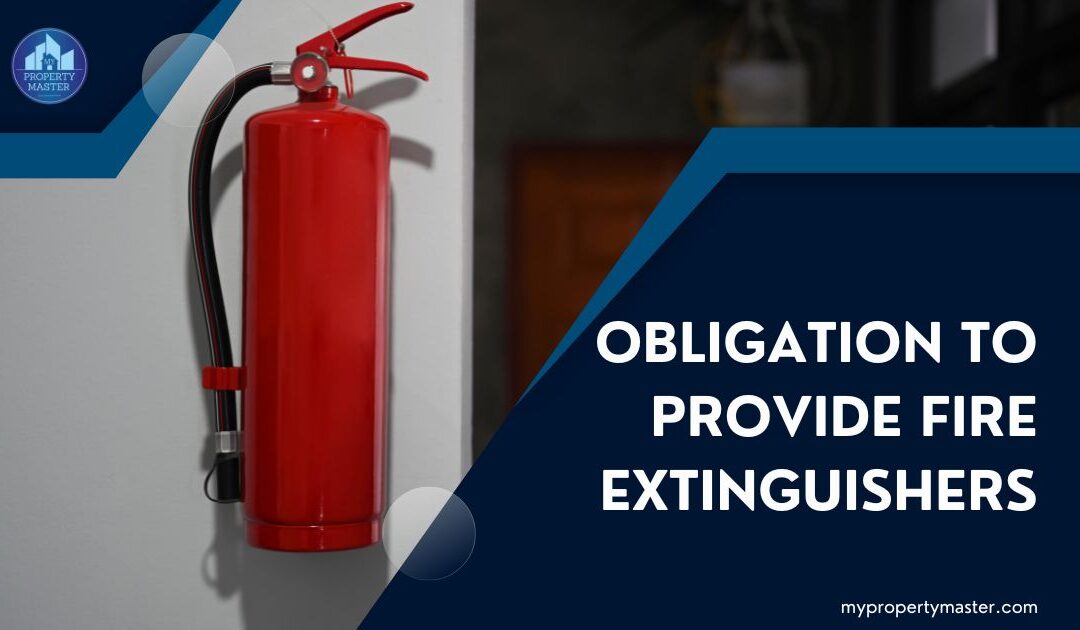Landlords or property management companies have to provide fire extinguishers for safety precautions and to protect their properties & tenants from future vulnerabilities. Fire extinguishers are not such things that tenants buy from their pocket.
However, landlords are typically not legally required to provide fire extinguishers in residential units in many jurisdictions, but specific regulations vary. It is essential to check local housing codes and rules to determine the specific requirements in a particular area. However, a good landlord or professional property management contractor will provide and create awareness.
I have been working as a property management contractor in Rhode Island for over 30 years. From my practical experience and legal aspects, I will answer the question related to fire extinguishers in detail.
Aside from the legal obligations, I will also discuss standard safety practices and the overall importance of fire extinguishers in rental properties.
Let’s get started.
Legal aspects and responsibilities of providing fire extinguishers
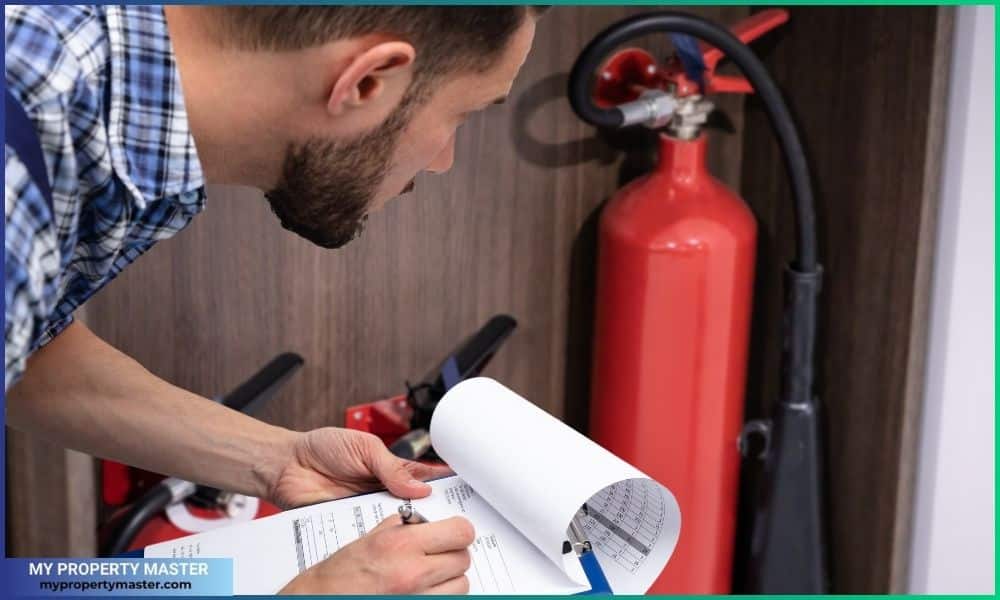
When renting a property, landlords and tenants have certain rights and responsibilities. One critical aspect of these responsibilities is ensuring the safety of the occupants. Fire safety, in particular, is a paramount concern for both landlords and tenants alike.
Read also: What rights do tenants have without a lease?
Legal requirements
In many jurisdictions, specific laws and regulations governing the safety measures landlords must implement in their rental properties. While the details can vary, providing fire extinguishers is a common requirement.
Landlords are often obligated to equip their rental units with functional fire extinguishers and ensure they are easily accessible in an emergency.
These legal requirements are to protect tenants and minimize the risk of fire-related incidents. This is also a moral responsibility that landlords bear to safeguard the well-being of their tenants.
Read also: Why is the landlord asking for a W9?
Types of properties covered

The obligation to provide fire extinguishers may vary depending on the property type.
Residential properties, commercial spaces, and multi-unit buildings may have different requirements. For instance, a single-family home may have different regulations than a high-rise apartment building or a commercial office space.
Understanding the specific legal requirements for the type of property you own or manage is crucial. Knowing these legal requirements ensures that you comply with the law and take the necessary steps to protect the occupants in the event of a fire.
Responsibility for maintenance
Providing fire extinguishers is not a one-time obligation for landlords. Checking expiry dates, maintenance, and testing are very important.
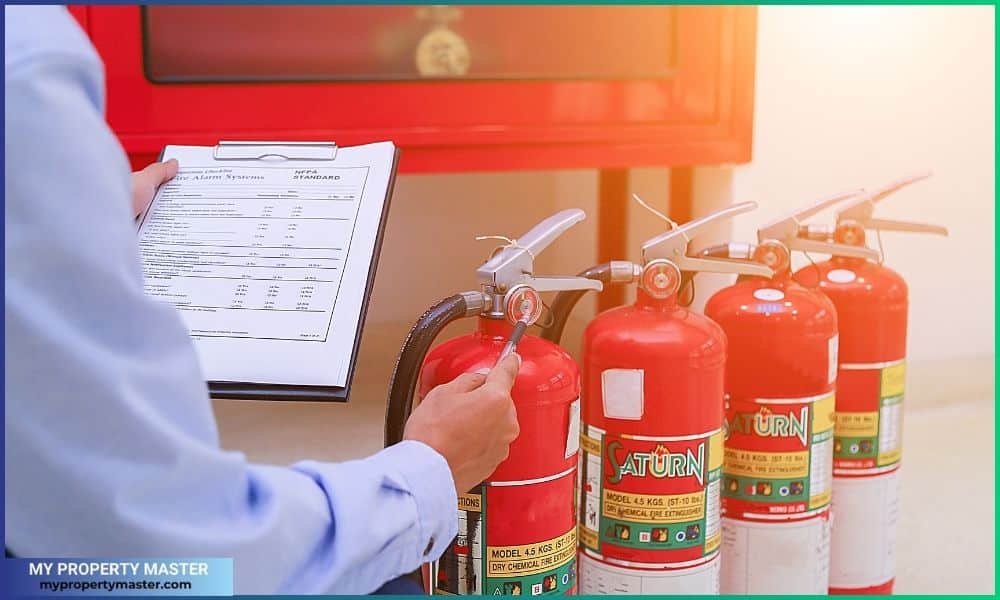
Landlords should ensure that the extinguishers are in good working condition, have not expired, and are easily accessible to tenants.
Some jurisdictions may require landlords to conduct periodic inspections and maintenance of fire safety equipment, including fire extinguishers.
Educating tenants on fire safety
Beyond providing fire extinguishers, landlords should proactively educate tenants on fire safety. This education includes information on using a fire extinguisher effectively, the importance of an evacuation plan, and general fire prevention tips.
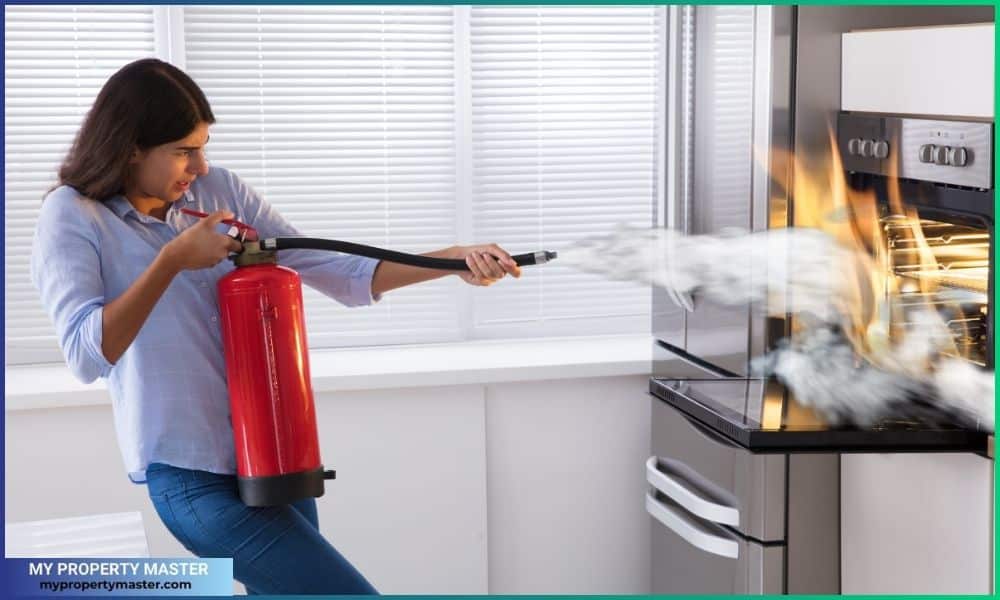
Landlords can distribute informational leaflets, conduct safety seminars, or include fire safety guidelines in the agreement.
Well-informed tenants are more likely to respond appropriately to a fire event, potentially minimizing damage and injuries.
Insurance considerations
Landlords may also want to consider the impact of fire safety measures on their insurance coverage.
Insurance providers generally have specific requirements regarding fire safety equipment, and failure to meet these requirements could result in higher premiums or even the denial of coverage.
By proactively implementing fire safety measures, including providing and maintaining fire extinguishers, landlords can not only meet legal obligations but also create a safer living or working environment for tenants.
Common fire safety practices
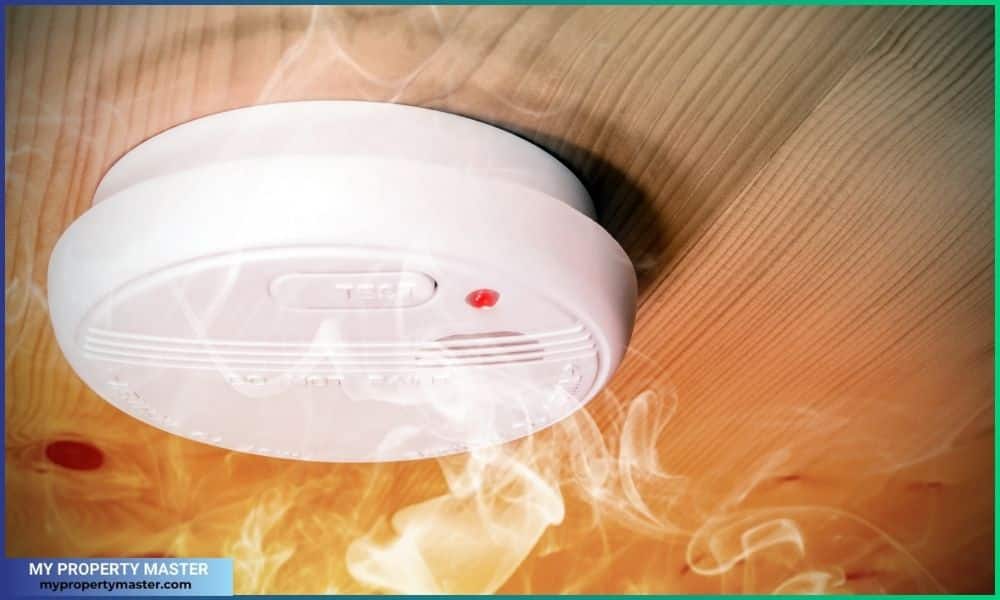
In addition to providing fire extinguishers, there are several other standard fire safety practices that landlords should consider implementing:
- Smoke Alarms: Ensuring that smoke alarms are installed and functioning properly is fundamental to fire safety. Regular testing and battery replacement are essential.
- Fire exits and escape routes: Marking fire exits and providing information on escape routes can be crucial in emergencies. Landlords should ensure that these paths are unobstructed and easily accessible.
- Emergency lighting: In a power outage during a fire, emergency lighting can guide tenants to safety. Landlords should consider installing battery-powered emergency lights in common areas and hallways.
- Fire safety training: Offering fire safety training to tenants and property management staff can significantly enhance overall safety. Training sessions can cover evacuation procedures, fire extinguisher usage, and first aid.
Frequently asked questions
Rhode Island has no specific statewide requirement mandating landlords to provide fire extinguishers in residential units. However, regulations may change, so it is crucial to check the most recent local housing codes and regulations or consult legal authorities for the latest information.
Yes, fire extinguishers do have an expiration date. Most extinguishers have a lifespan of about 10 to 15 years.
To determine if your fire extinguisher needs replacing, check the expiration date, inspect the pressure gauge within its recommended range, and ensure the hose, nozzle, safety pin, and tamper seal are intact. Look for visible damage, such as dents or corrosion. For pressurized water extinguishers, verify the readiness light. If any components are damaged or the extinguisher has exceeded its recommended lifespan (usually 10 to 15 years), it should be replaced promptly. Regular visual inspections and adherence to manufacturer guidelines are crucial for maintaining a reliable and effective fire extinguisher.
Conclusion
Whether a landlord has to provide fire extinguishers is often answered by legal requirements that vary based on jurisdiction and property type. However, beyond mere compliance, landlords should recognize the broader responsibility they bear for the safety of their tenants.
Providing and maintaining fire extinguishers is just one aspect of a comprehensive fire safety strategy. Landlords should embrace a holistic approach that includes regular inspections, educational initiatives, and tenant collaboration.
Landlords fulfill their legal obligations by prioritizing fire safety and contributing to the community’s well-being. Fire safety is a shared responsibility, and landlords play a vital role in ensuring that their properties are equipped to handle emergencies effectively, protecting lives and property.

